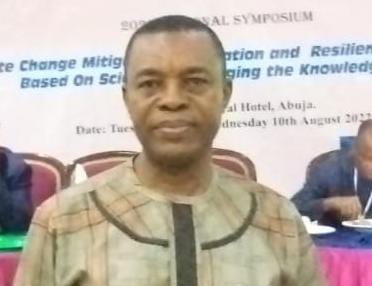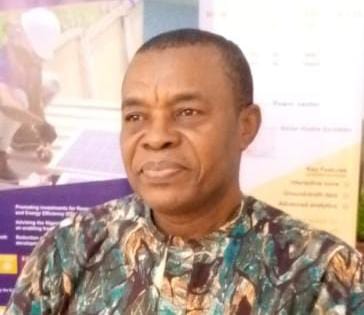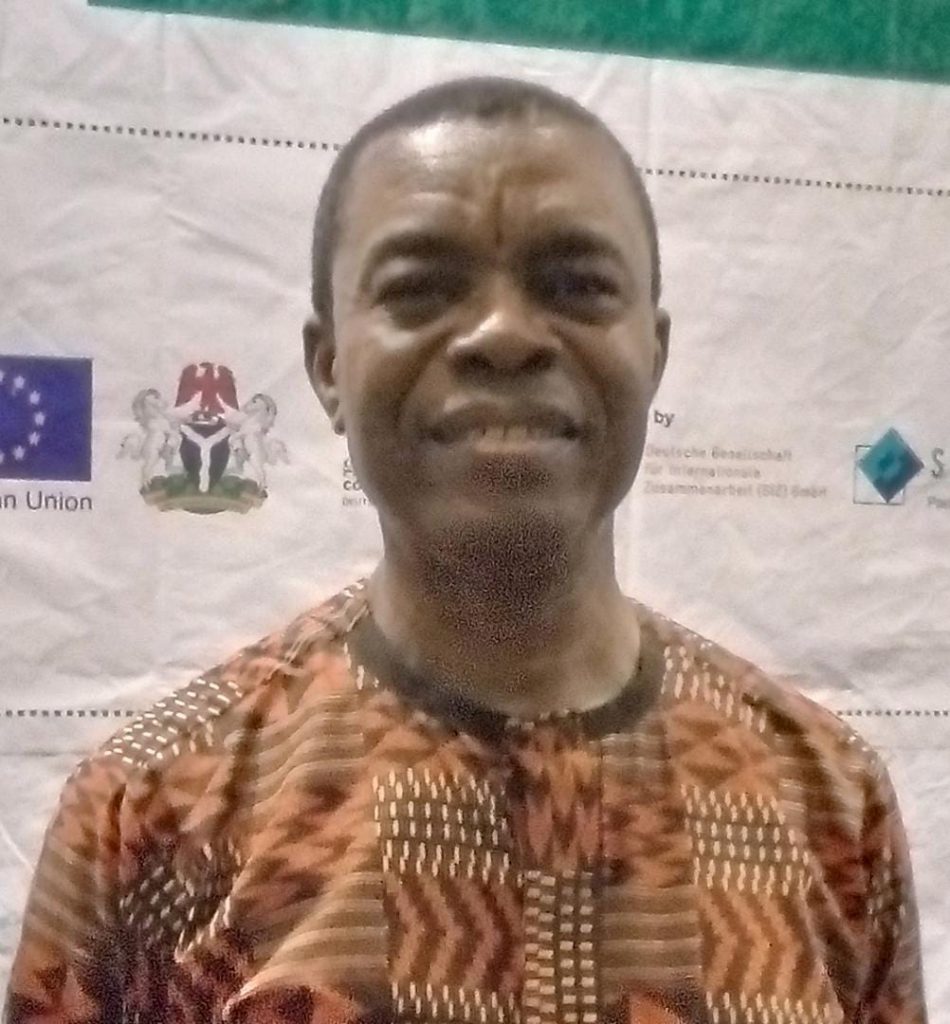
…….AHOA CSOs Movement Calls For A Global Treaty To End The Menace of Gender-Based Violence & Violence Against Women And Girls.

….. Adirieje Calls for a New GBV/VAWG Treaty to Promote Best Practices in Women’s Protection, Human Right and Security.

….. Ending Violence Against Women: AHOA’s CEO says CEDAW, Three Regional Treaties Have Limitations.

…..73% of Women Currently Exposed to Online Gender-Based Violence – AFRIHEALTH
By Victor Bieni, Abuja
Afrihealth Optonet Association (AHOA) – the global civil society organizations (CSOs)’ movement, has called for a New Global Binding United Nations Treaty tagged: “Every Woman Treaty; To End Violence Against Women and Girls Everywhere”. Speaking at a press conference in Abuja, Nigeria; Dr. Uzodinma Adirieje, AHOA’s Chief Executive Officer (CEO) stated that, the new treat by United Nations will ensure that countries, Governments, CSO leaders, other critical stakeholders promote best practices, protect 100 percent of women’s fundamental human rights; foster women’s protection, safety and security and end menace globally.
Dr. Uzodinma Adirieje made this call on Friday, February 3, 2023 in a press statement made available to journalists in Abuja, Nigeria’s Federal Capital Territory as he stated that global crises such as war, climate change, COVID-19 pandemic, and abusive uses of technology are driving a rise in violence against women and girls (VAWG).
It could be recalled that in 2021, Afrihealth Optonet Association (AHOA) undertook a high-level Advocacy to the Federal Government of Nigeria for the endorsement of the EWT; and this contributed to the endorsement of the Treaty by Nigeria’s President His Excellency Muhammadu Buhari, GCFR during his speech at the 2021 United Nations General Assembly in NY. Also, foods have forced families to flee to camps, where rape and harassment are rampant. Women report feeling unsafe at home due to increase incidents of intimate partner violence as a result of Covid-19, sexual violence in conflict and in the military has skyrocketed. Recent reports had it that, 73% of the world’s women have been exposed to some form of online violence, making cyber- violence one of the most prevalent forms of violence against women. According to the statement, in 2021, United Nations’ reports had it that, a significant increase in the number of reported cases of sexual violence. He added that, reports also had it that, one in two women had experienced violence since the COVID-19 pandemic.
Dr. Uzodinma Adirieje while hinting the reasons for advocating for a New Treaty stated: “The risk of being trafficked can increase by 20 to 30 percent in the aftermath of extreme weather events. The rise in violence begs a single question: Are the needs of women and girls being met under the current international framework? The indisputable answer is no. While the current framework has produced extraordinary advances, it is not enough to outpace the rising tide of violence. More is needed. For 30 years, experts including the Commission on the Status of Women, Special Rapporteurs on violence against women, and frontline advocates have repeatedly called for a global treaty to eliminate violence against women and girls. Today, a treaty remains the most powerful tool available to curb the rise in violence and build a more comprehensive framework that allows women and girls to exercise their full human right to a life free from violence”.
“A new treaty would build on the extraordinary foundation of the current system, working in concert with existing mechanisms, including the Convention on the Elimination of All Forms of Discrimination Against Women (CEDAW) and regional treaties. While CEDAW is exceptional at addressing discrimination against women, the scope of discrimination and violence against women are both so vast that both treaties are essential to the lives and well-being of women and girls. Are the needs of women and girls being met under the current international framework? The indisputable answer is no”.
The Press statement by AFRIHEALTH CEO reads in parts: “AHOA is a community-focused civil society organizations global movement and think tank promoting policies, practices, programmes and interventions that enhance productivity, accountability and transparency in Society Welfare, Social Safety nets, Development Work, Sustainable Development and Health. AHOA has a global membership of over 1000 organizations mainly from the global South and promotes the ‘One Health’ paradigm where Health is a state of complete physical, mental and social well-being. AHOA uses partnership/collaboration, advocacy, research and evidence generation, capacity development, outreaches, monitoring and evaluation (M&E) as strategies. AHOA’s interventions are for the benefit of rural and poor urban dwellers, marginalized, vulnerable and disadvantaged populations of women, children, adolescents, persons with disability, persons in conflict-affected areas, the poor, elderly, rural, disadvantaged and vulnerable persons, orphans and the elderly. The AHOA Network Coalition and Think-tank works to explore the nexus between Health – UHC, PHC, Reproductive Health, HIV, AIDS, TB, Malaria, NCDs, NTDs, Vaccines, Immunization and COVID-19; Nutrition and Food Security; Gender, Democracy, Good Governance and Human Rights. AHOA has local Chapters in Nigeria’s 36 States and Abuja. AHOA has a Consultative Status at the United Nations ECOSOC; and an Accredited Observer status at the UNEP/United Nations Environment Assembly (UNEA)”.
“In an analysis of 85 of the CEDAW Committee’s recent Concluding Observations, only an average of 17.73 percent was afforded to violence against women and girls, a small percentage simply because so many other areas of discrimination need attention. A new treaty would be able to devote 100 percent of its focus to violence against women and girls, supporting and complementing the work of CEDAW. The three regional treaties on violence against women — the Belém do Pará Convention in the Americas, Africa’s Maputo Protocol, and the Istanbul Convention in Europe — have been essential in moving toward a more comprehensive and coordinated framework, but they are limited by geography, covering only about 25 percent of the world’s women. That leaves nearly 75 percent of women, the majority of whom are women of color, without protection from a treaty specific to eradicating violence against women and girls”.
“Dr Uzodinma Adirieje is an independent Projects and Evaluations, Research and Data Consultant, Writer/Columnist, civil society leader/activist; with an eloquent passion for development and humanitarian interventions/initiatives. He heads a firm of Consultants for conferences/Seminars, Training and Facilitation, and Projects Management with proven competencies in drafting/preparing documents, concept papers/notes, policies, programmes, communique, reports, etc. His latest engagements were as the Technical Consultant for Nigeria’s 63rd National Council on Health (5-9 Dec. 2022), and Lead Rapporteur and Communique Consultant for the 7th National Family Planning Conference (12-16 Dec. 2022)”.
The statement further emphasized that, “A new treaty would consolidate definitions and best practices from various instruments into one comprehensive mechanism, codifying standards into clear, actionable, and measurable steps for women’s protection and security. A treaty would ensure that all acts of violence against women and girls are understood as a violation of women’s human rights. It would also work to establish stronger global norms and expectations on the issue, and improve the quality and consistency of laws on violence against women and girls globally. Women and girls cannot wait. In the face of rising violence, the lack of a binding global instrument leaves the lives of women and girls in peril. As Her Excellency Shara Duncan Villalobos, UN Ambassador, Costa Rica, says, it’s time “to take on the challenge not only for women and girls but for the whole of society”.